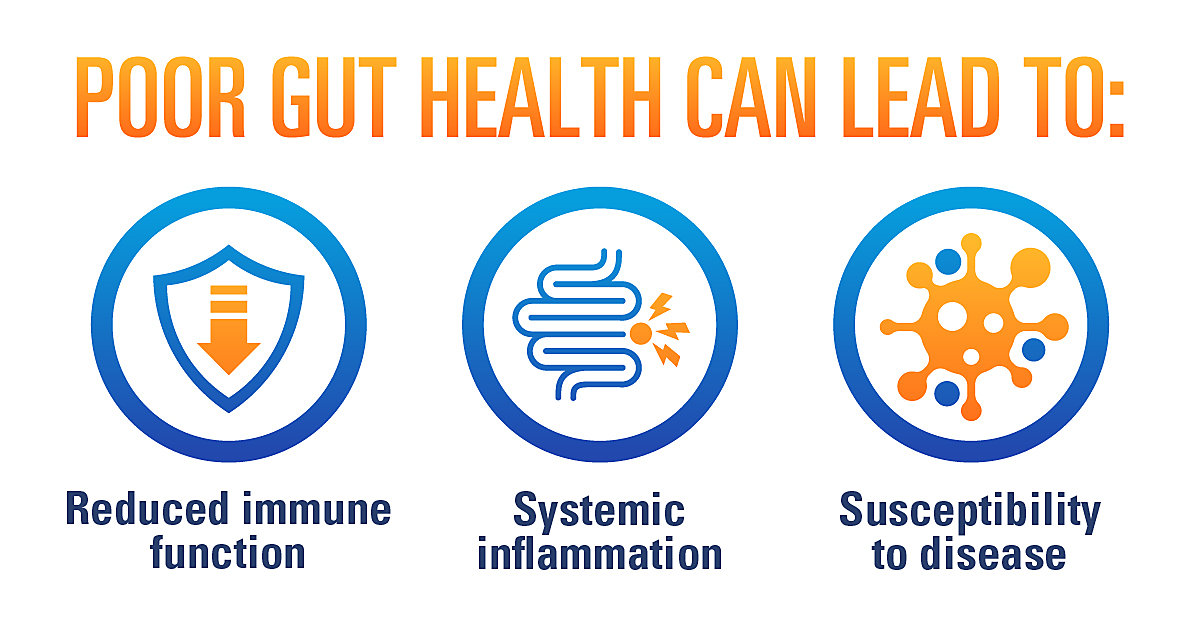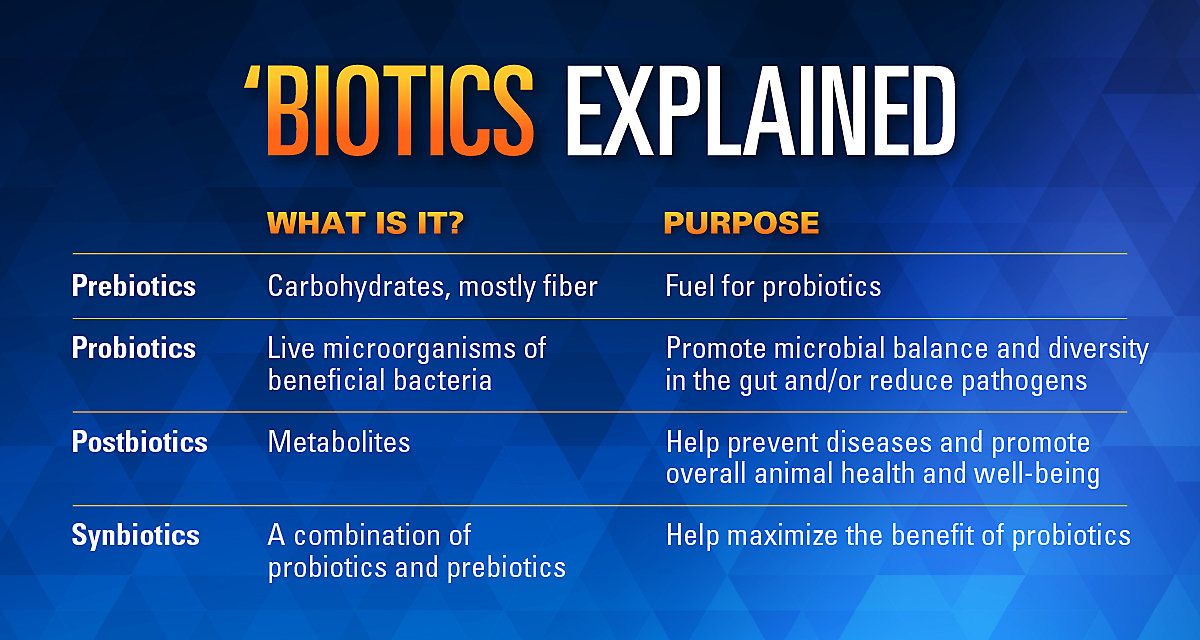The use of prebiotics and probiotics in horse diets has become a common practice — and for good reason.1,2,3 Increased attention to and understanding of gut health in humans, pets and livestock have led to more research and effective solutions available on the market. Research studies have shown:
- 82.7% of horse owners and leasers believe that prebiotics and probiotics are beneficial to their horse's gut health.3
- More than half (52.9%) of these horse owners use feeds containing prebiotics or probiotics, while 32.7% offered a supplemental prebiotic or probiotic.3
- 68.2% of horse owners said they believe prebiotics and/or probiotics sould be part of a horse's daily feeding program.3
But, did you know there are actually four 'biotics you should know about: pre-, pro-, post- and synbiotics? Let's look at each of the four categories, define what they are and discuss how they work together.
First, let's break downt the role 'biotics play in your horse's overall health and welfare.
Why focus on gut health?
The equine gastrointestinal (GI) tract, which is susceptible to disease and sensitive to changes in diet, has a complex and diverse bacteria population called the microbiome that is critical to a horse's health.1,2 The microbes within the GI tract assist with the digestion of nutrients, stimulate immune response, help protect against external pathogens, neutralize toxins and regulate gene expression — all of which are vital functions.2,4,5 Poor gut health can result in leaky gut, leading to reduced immune function, systemic inflammation and susceptibility to disease.




